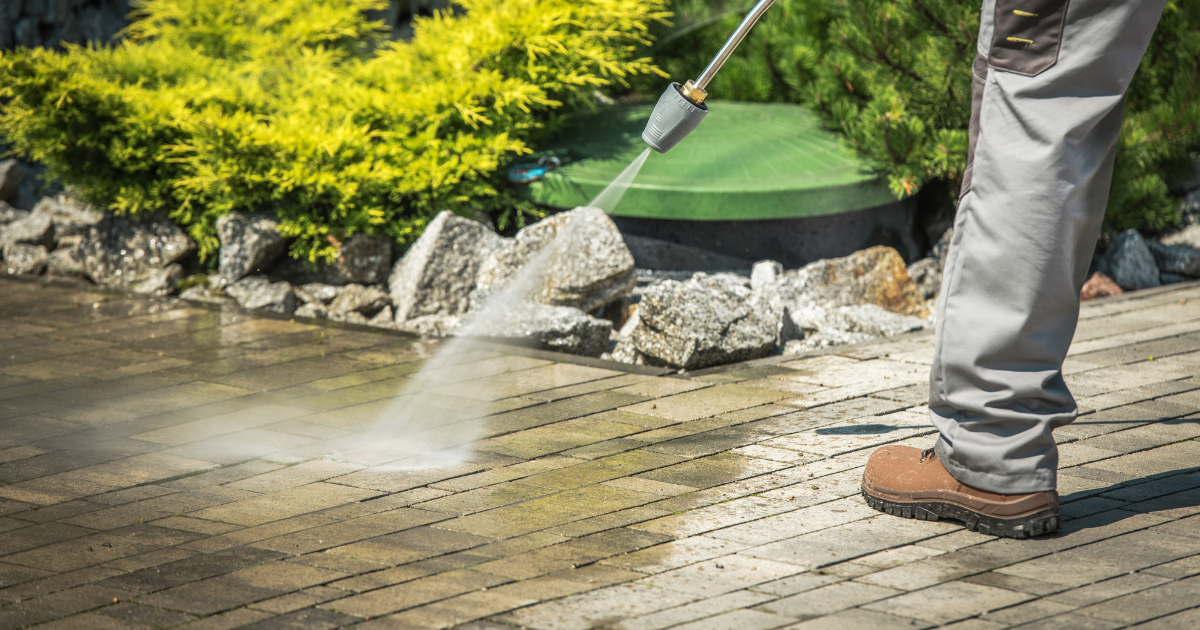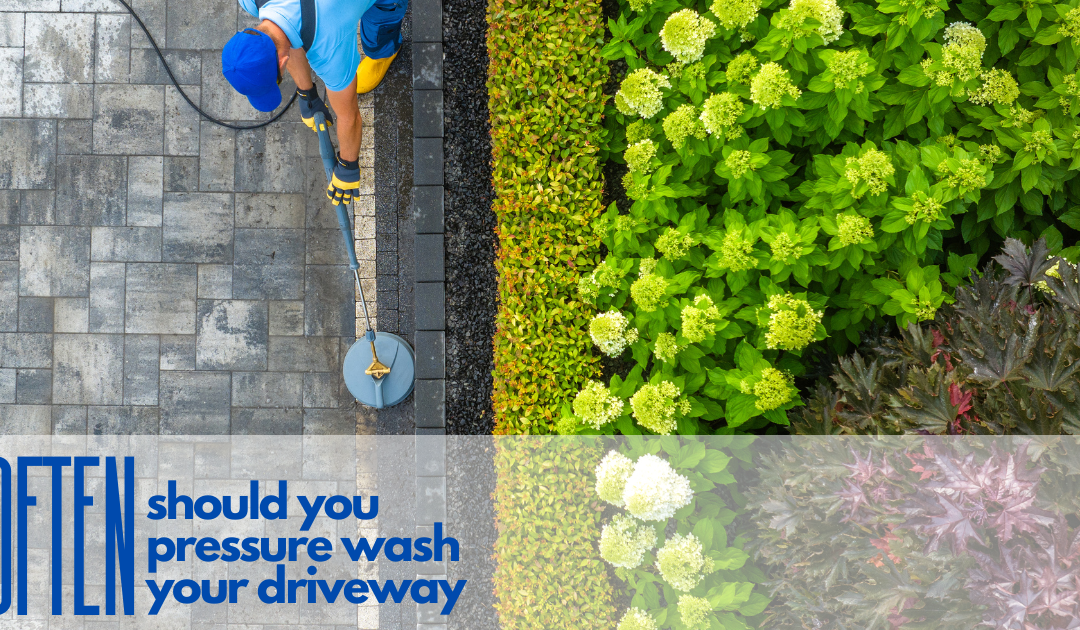There is nothing quite like the look of a freshly cleaned driveway. Whether you’re looking to improve your curb appeal or just want to keep your outdoor space looking pristine, pressure washing your home’s driveway can make a huge difference. But how often should you do it? Let’s take a look and help you decide.
How Often To Pressure Wash Your Driveway
The rule of thumb when it comes to pressure washing driveways is that you should aim for at least once per year. This will help remove any dirt, debris, and grime build-up that has accumulated over time. It also helps prevent mold, mildew, and algae growth, which can cause permanent damage if left untreated. Keep in mind that if you live in an area with harsher weather conditions—like high winds or heavy snowfall—you may need to pressure wash more frequently.
In addition to regular cleaning, you should also consider pressure washing your driveway after certain events occur; such as when you’ve applied new sealant or paint, after a heavy rainstorm or flood, or if there is visible oil or grease staining on the pavement. These scenarios require extra attention as they can be detrimental to the longevity of your driveway’s surface if not taken care of quickly and correctly.
Factors to Consider When Pressure Washing Your Driveway
The frequency of pressure washing your driveway depends on a few factors. For example, the type of material used for your driveway will determine how often you should clean it. If your driveway is made of concrete or asphalt, for instance, then it should be cleaned about once every two years. On the other hand, if your driveway is made from brick or stone pavers, then you’ll need to power wash it at least once per year in order to keep it looking its best.
Another factor that plays a role in determining how often you need to pressure wash your driveway is the weather conditions in which you live. If your area experiences extreme temperatures or rainfall levels on either end of the spectrum—high heat or cold winters—then you may want to consider power washing more frequently than every two years. This helps keep dirt and grime buildup at bay while preventing damage caused by extreme weather conditions like freezing and thawing cycles.
Finally, the amount of traffic that passes over your driveway also determines how often you should pressure wash it. If there are lots of cars driving over your driveway on a regular basis, then it’s likely going to accumulate more dirt faster than if there was no traffic at all. Therefore, if you find that dirt accumulation is happening quickly due to heavy foot traffic, then increasing the frequency of power washing can help maintain its appearance much better than waiting until cleaning time comes around again.

What Not To Do When Pressure Washing
When it comes to pressure washing your driveway, there are some important rules to follow so you don’t cause any unnecessary damage:
• Don’t use too much water pressure – Too much water pressure can easily damage the surface of your driveway and lead to costly repairs down the road. Stick with a low-pressure setting for best results.
• Don’t forget about safety – Make sure all power cords are out of the way before turning on the machine and that no one is standing too close while it’s running. Additionally, wear protective gear such as gloves, goggles and boots while operating the washer. • Don’t forget about cleaning solutions – If you’re using detergents or other cleaning solutions during your wash session make sure they are specifically designed for use with a power washer as some products could be abrasive and cause scratches on surfaces like concrete or asphalt driveways.
• Don’t forget about maintenance – After each use make sure all hoses are properly stored away and check for any signs of wear on the machine itself; this will help ensure everything works properly next time around!
Keeping up with regular maintenance for outdoor surfaces such as driveways requires some effort but reduces long-term repair costs significantly down the line. Depending on where you live and what materials are used for construction, most driveways require between one and two yearly cleanings using a high-pressure washer system for optimal results. Taking into account factors such as weather conditions and traffic levels can help determine an appropriate cleaning schedule that works best for you and keeps your property looking neat and inviting all year round!

